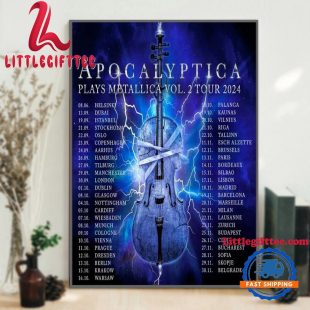Music
Is Metallica a Christian Band?
The question of whether Metallica is a Christian band is a compelling one, deeply rooted in the intersection of music and belief systems. As one of the most influential heavy metal bands in history, Metallica has made an indelible mark on the music landscape with their powerful sound and thought-provoking lyrics. The spiritual affiliations of the band members, along with the themes present in their songs, often fuel discussions about the potential for Christianity within their music. This article delves into these complexities, examining the beliefs of Metallica’s members, the thematic essence of their work, and the broader cultural perceptions surrounding the band.
The Members’ Beliefs

Understanding whether Metallica is a Christian band begins with exploring the personal beliefs of its members. The backgrounds of the band’s frontmen and how they influence their artistry offer a unique lens through which to view their music.
Individual Backgrounds and Faith Origins
Many prominent musicians in the metal genre, including members of Metallica, come from various Christian backgrounds. For instance, James Hetfield, the lead vocalist and rhythm guitarist, was raised in a Christian household but has expressed ambivalence towards organized religion throughout his life. Similarly, Lars Ulrich, the drummer, grew up in Denmark, where Lutheranism is prevalent.
These origins suggest that while the band members may have roots in Christianity, it does not necessarily mean that their music adheres strictly to Christian ideals. However, their upbringing could influence their songwriting, allowing them to explore spiritual themes without overtly promoting a particular doctrine.
Misconceptions About Heavy Metal
The heavy metal genre has often been mischaracterized as being anti-Christian or satanic. Critics frequently cite lyrics that delve into darker themes as evidence of this stance. Yet, a closer examination reveals that many metal bands, including Metallica, do not promote hate or negativity toward Christianity; instead, they use their art to express complex human emotions such as pain, loss, and existential inquiry.
For Metallica, this means utilizing their platform to explore faith-related topics without subscribing to a singular viewpoint. Their willingness to address spiritual struggles could even reflect a more profound respect for the concept of faith, regardless of the specific beliefs involved.
Artistry vs. Personal Belief
The distinction between personal faith and artistic expression raises an important question: does a musician’s personal belief automatically translate into the thematic essence of their music? While listeners may seek to find overt expressions of faith in Metallica’s discography, the reality is that their work often encapsulates a more nuanced exploration of emotions, including doubt and disillusionment.
This dichotomy challenges listeners to consider how their own beliefs shape their interpretations of the music. A song that resonates with one listener as a depiction of despair might evoke a sense of hope in another. Therefore, while the band members’ backgrounds contribute to the narrative, they do not confine the music to solely Christian themes.
Themes of Faith in Their Music
Exploring the thematic elements of Metallica’s music reveals a tapestry rich with spiritual inquiries and emotional depth. The presence of religious undertones in several songs raises the question of how they relate to the notion of Metallica as a Christian band.
“The God That Failed”: An Exploration of Faith
One of Metallica’s most poignant tracks, The God That Failed, invites listeners into a labyrinth of personal struggle and faith. Written by James Hetfield, the song reflects on his relationship with his mother, who adhered to the Christian Science movement. It deals with the themes of loss, guilt, and ultimately, redemption.
The song vividly portrays Hetfield’s inner turmoil as he grapples with feelings of abandonment due to his mother’s strict adherence to her beliefs. The lyrics serve as a canvas for his ongoing conflict regarding faith, capturing the essence of what it means to be torn between familial loyalty and personal convictions.
Listeners interpret the song through different lenses—some may see it as a critique of organized religion, while others may find solace in its exploration of faith and individual struggle. This ambiguity enables the track to resonate with a diverse audience, further complicating the question of whether the band can be classified as Christian.
Other Songs Reflecting Spiritual Themes
While The God That Failed stands out, other Metallica songs also grapple with spiritual themes. Tracks like Fade to Black and Until It Sleeps touch upon feelings of despair and the search for meaning, inviting listeners to confront their own struggles with existence.
These themes of questioning and introspection align more with universal human experiences than with any specific religious doctrine. The incorporation of such concepts allows Metallica’s music to transcend standard genre boundaries, positioning them as artists whose work contributes to a broader conversation about spirituality and identity.
The Duality of Interpretation
Music is inherently subjective, and Metallica’s work exemplifies this duality in interpretation. Some fans might perceive their lyrics as affirmations of faith, while others may view them as contemplations on nihilism or despair. This multifaceted understanding invites individual reflections on the nature of belief and how it shapes one’s understanding of oneself and the world.
As listeners engage with the music, they bring their personal stories and beliefs into the experience. Whether or not one identifies with Christianity, there is an opportunity for each listener to glean insights about their spirituality through the band’s lyrics. Consequently, this fluid interpretation reinforces the idea that Metallica is not bound to a singular identity, but rather exists at the intersection of diverse experiences and understandings.
The Influence of Metallica on Personal Faith

An interesting aspect of Metallica’s legacy involves how their music has served as a catalyst for personal transformation and spiritual awakening among listeners. This phenomenon reveals even deeper implications regarding the notion of Metallica as a Christian band.
Testimonials of Transformation
Numerous anecdotes exist about how Metallica’s music has prompted individuals to reconnect with their faith. One noteworthy account highlights how the song The God That Failed helped someone rediscover their belief in Jesus Christ after grappling with doubts and fears. These transformative experiences underscore the profound impact that art can have on an individual’s spiritual journey.
Such testimonials illustrate that while Metallica may not explicitly identify as a Christian band, their music resonates with themes that encourage soul-searching and reflection. The ability of their songs to inspire such change points to the power of music as a force for spiritual growth.
Bridging Gaps Between Genres and Beliefs
In today’s increasingly polarized world, Metallica’s music serves as a bridge between different perspectives. By engaging with universal themes of love, loss, and redemption, their songs foster connections among people of various faiths and beliefs. This notion suggests that while the band may not fit neatly into a specific label, their work cultivates conversations surrounding spirituality that extend beyond musical genres.
The broader implications of this bridge-building can lead to greater understanding and acceptance among those holding differing worldviews. Listeners who may have been estranged from traditional religious practices might find solace in Metallica’s music, presenting an opportunity for dialogue about faith in modern society.
Encouragement to Explore Spirituality
Ultimately, the influence of Metallica on personal faith encourages a sense of curiosity and exploration. Rather than prescribing a specific set of beliefs, their music opens the door for individuals to examine and articulate their spirituality in new ways. This notion aligns with the idea that true faith is not rigidly defined but is instead a dynamic journey shaped by personal experiences.
The acknowledgment of individual journeys toward understanding one’s beliefs is crucial in discourse surrounding the classification of Metallica as a Christian band. Their role as facilitators of spiritual exploration further complicates the binary categorization of artists and provides room for nuanced dialogue about faith within music.
Misconceptions and Cultural Perceptions

Throughout their career, Metallica has faced significant misconceptions about their music and its intended messages. These cultural perceptions often tie back to the stereotypes associated with heavy metal, raising questions about how these dynamics influence the overall understanding of the band.
The Dark Misinterpretation of Lyrics
Heavy metal as a genre often grapples with themes of darkness, despair, and rebellion. Critics argue that Metallica’s lyrics, which sometimes delve into these areas, inherently oppose Christian values. However, such claims often overlook the essential function of artistic expression, which seeks to capture the complexity of human emotion rather than espousing a particular ideology.
By employing darker themes, Metallica evokes a range of feelings that allow listeners to confront their demons and acknowledge their struggles. Similar to classical composers who used themes of darkness to convey profound human emotions, Metallica’s lyrical choices resonate on a deeper level, challenging simplistic interpretations of their art.
The Role of Artistic Freedom
Artistic freedom is fundamental to any creative endeavor, and music is no exception. Metallica’s commitment to exploring complex subjects, including spirituality, illustrates a dedication to authenticity and vulnerability. They resist being pigeonholed into a single label, opting instead to weave a wide array of themes into their lyrics.
This breadth of creativity ensures that their music remains relatable, regardless of the listener’s personal beliefs. Those drawn to heavier music may initially connect with the aggression or angst in their sound, only to discover deeper layers of meaning upon closer examination. This invites both fans and detractors to reconsider preconceived notions about metal and the messages behind the music.
Challenging Stereotypes
The misconceptions surrounding Metallica are emblematic of broader societal attitudes toward heavy metal music. The genre has long been stigmatized as dangerous or morally corrupt, often leading to misunderstandings about the intent behind its messaging.
However, it is essential to recognize the diversity of perspectives present within the heavy metal community. Like all forms of art, heavy metal is not monolithic; it encompasses myriad voices and experiences that reflect the human condition. Metallica’s willingness to challenge stereotypes allows for a richer understanding of the genre as a whole, moving beyond simplistic narratives associated with anti-Christian sentiments.

In conclusion, the classification of Metallica as a Christian band is ultimately subjective and enriched by varied interpretations of their music. While the band’s members possess individual beliefs that may intersect with Christianity, their artistry transcends specific labels, inviting listeners to engage with deeper questions of faith, identity, and self-discovery. Through the exploration of spiritual themes, personal testimonies, and the complexities of artistic expression, Metallica continues to provoke thought and dialogue among audiences of all backgrounds.
Their legacy reveals that music can indeed serve as a powerful medium for exploring the intricacies of human experience, prompting personal reflection and inviting individuals to confront their own beliefs. In doing so, Metallica creates a space where conversations about faith are welcomed, encouraging listeners to embark on their own spiritual journeys.




















